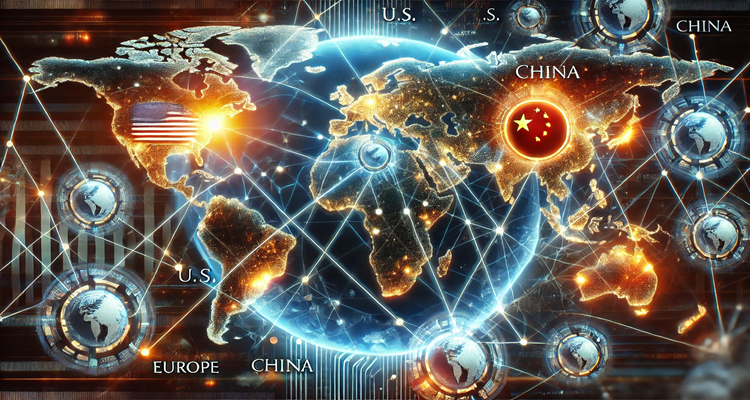Technological Decoupling: How U.S. Sanctions Shape China’s Innovation Future
The report "Technological Decoupling: The Impact on Innovation of U.S. Restrictions on Chinese Firms" examines how U.S. sanctions are reshaping global innovation. It explores the challenges faced by Chinese firms, sectoral spillovers, and shifts in international collaboration, while highlighting the potential for domestic innovation to thrive amid adversity.

In a recent report titled "Technological Decoupling: The Impact on Innovation of U.S. Restrictions on Chinese Firms", researchers delve into the sweeping consequences of American sanctions on Chinese innovation. Published by a leading research institution, the study examines the ripple effects of placing Chinese firms on the U.S. Entity List. This action disrupts their access to vital technological partnerships and resources.
Innovation Under Pressure
China’s innovation trajectory has been remarkable since it acceded to the WTO, spurred by international collaborations that fostered groundbreaking advancements. However, escalating U.S.-China tensions over technological supremacy have dramatically reshaped this landscape. According to the report, firms blacklisted by the U.S. face a notable decline in both the quantity and quality of patents, as restrictions hinder collaboration with American inventors.
Interestingly, not all firms are affected equally. Enterprises with substantial patent portfolios or those operating in sectors with a technological edge close to the U.S. show greater resilience. This disparity highlights the uneven impact of decoupling policies, suggesting that innovation in more mature industries is less vulnerable to external shocks.
Sectoral Shockwaves
The ramifications of U.S. sanctions extend beyond the targeted firms, permeating entire sectors. Downstream industries reliant on restricted technologies experience a sharp drop in innovation, with fewer patents being filed. Conversely, some upstream sectors—like suppliers of foundational technologies—demonstrate a modest uptick in patent activity. This trend points to a silver lining: the potential stimulation of domestic innovation as Chinese firms seek homegrown alternatives to fill technological voids.
A Shift in Global Collaboration
One of the report’s most compelling findings is the geographical pivot in China’s innovation network. While ties with U.S. inventors have weakened, Chinese firms are forging new partnerships with European and Asian counterparts. This diversification of collaboration mitigates the immediate impact of sanctions and hints at the emergence of a multipolar innovation ecosystem that could redefine global technological alliances.
Methodology and Insights
The study relies on robust data from the PATSTAT database, employing advanced techniques like propensity score matching and difference-in-difference analysis to draw its conclusions. This approach ensures that the findings are both credible and actionable, shedding light on the broader implications of technological decoupling.
Policy and Global Implications
The report underscores the dual-edged nature of U.S. sanctions. On the one hand, they disrupt Chinese innovation ecosystems and diminish collaborative gains for American firms. On the other, they catalyze China’s efforts to bolster its domestic innovation capabilities and reduce reliance on foreign technology—a move that could accelerate its self-sufficiency in critical industries.
The broader message is clear: technological decoupling is not a zero-sum game. While it imposes immediate costs on innovation, it also sets the stage for long-term shifts in the global technological order. As the world watches the fallout, both nations must weigh the risks and opportunities of pursuing independent paths in innovation.
The report, "Technological Decoupling: The Impact on Innovation of U.S. Restrictions on Chinese Firms", serves as a timely exploration of the high stakes in the global tech race. It highlights the complexities of decoupling, offering nuanced insights into its short-term challenges and long-term transformations. As U.S.-China relations continue to evolve, this study provides a critical lens to understand the shifting dynamics of global innovation.
- FIRST PUBLISHED IN:
- Devdiscourse










